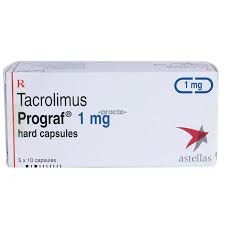
The following is the first of three parts of a series on the economic outlook of Trinidad and Tobago’s economy by the former minister of energy Kevin Ramnarine.
The Trinidad and Tobago economy contracted from 2016 to 2018.
Given what we know about oil and natural gas production data for 2019 (actuals to September 2019 are available) and the depressed external price environment, there is little to suggest there was economic growth in 2019.
This view is supported by the IMF and Moody’s (Credit Opinion, November 22, 2019) who had forecasted growth at 0% for 2019. Furthermore, the impact of the demonetisation of the TT one-hundred-dollar bill in Q4 2019 on consumer activity is uncertain.
On top of that Atlantic’s Train 1 was down for a major turnaround in Q4 2019 which would have impacted both LNG output and natural gas production.
I give this context because, it is likely that the TT economy has shrunk for four consecutive years, a situation that last occurred in the years 1986 to 1989.
This reality is in stark contrast to the May 2018 “mid-year review” claim by the Minister of Finance when he invoked Johnny Nash’s “I can see clearly now”.
Natural Gas Production
Natural gas production is the major determinant of economic growth in TT.
In 2020, natural gas production will decline compared to what was realised in 2019. The main reason for this would be a 12% to 15% decline in BPTT’s production.
In addition, there are no new major natural gas projects scheduled to come into production in 2020 as happened with BP Juniper (2017-2018), DeNovo Iguana (2018) and BP Angelin (2019).
New natural gas production projects serve to offset natural decline.
The decline in BPTT’s production in 2020 should come as no surprise following the April 2019 announcement of disappointing results of its infill drilling programmes in the Cannonball and Cashima fields.
That outcome has cast some doubt over the future of Atlantic’s Train 1 which is supplied solely by BPTT. To date a new agreement for Train 1 has not been finalised although negotiations have been going on since early 2018.
Even if a new agreement were finalised, it would be for a level of production well below the design capacity of Train 1 which is 3.0 million tonnes of LNG per annum.
The natural gas curtailments that have been a feature of the industry since late 2010 will be around for a while.
Oil Production
In the last four years oil production has fallen by 27% and production is now at levels last seen in colonial times.
Most of that decline has happened in Petrotrin/Heritage. This is to be expected as there has been no drilling in Trinmar since April 2016.
The dismantling of Petrotrin has disrupted production operations and far from the “milk and honey” that was promised, production at Heritage Petroleum has fallen by 18.8% compared to Petrotrin’s production if we compare the first nine months of 2019 to the first nine months of 2018.
In addition, saying Heritage is making profits is really a very moot point as Petrotrin’s Exploration and Production (E&P) division (now Heritage Petroleum) was always profitable.
It’s not all bad news.
It seems good sense finally prevailed at Heritage Petroleum and the long awaited Mobile Offshore Production Unit (MOPU) has been mobilised to south west Soldado.
This is 3.5 years late. Why was this project cancelled in 2016? Petrotrin/Heritage has lost 3.5 years of production which translates to billions of lost revenues for TT. Once operational the MOPU will add between 2,500 to 4,500 barrels of oil production which should see Trinmar’s oil production improve in 2020 but not back to 2015 production levels.
![]()












